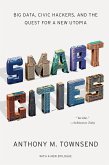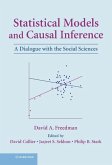Massive amounts of data on human beings can now be analyzed. Pragmatic purposes abound, including selling goods and services, winning political campaigns, and identifying possible terrorists. Yet 'big data' can also be harnessed to serve the public good: scientists can use big data to do research that improves the lives of human beings, improves government services, and reduces taxpayer costs. In order to achieve this goal, researchers must have access to this data - raising important privacy questions. What are the ethical and legal requirements? What are the rules of engagement? What are the best ways to provide access while also protecting confidentiality? Are there reasonable mechanisms to compensate citizens for privacy loss? The goal of this book is to answer some of these questions. The book's authors paint an intellectual landscape that includes legal, economic, and statistical frameworks. The authors also identify new practical approaches that simultaneously maximize the utility of data access while minimizing information risk.
Dieser Download kann aus rechtlichen Gründen nur mit Rechnungsadresse in A, B, BG, CY, CZ, D, DK, EW, E, FIN, F, GR, HR, H, IRL, I, LT, L, LR, M, NL, PL, P, R, S, SLO, SK ausgeliefert werden.









